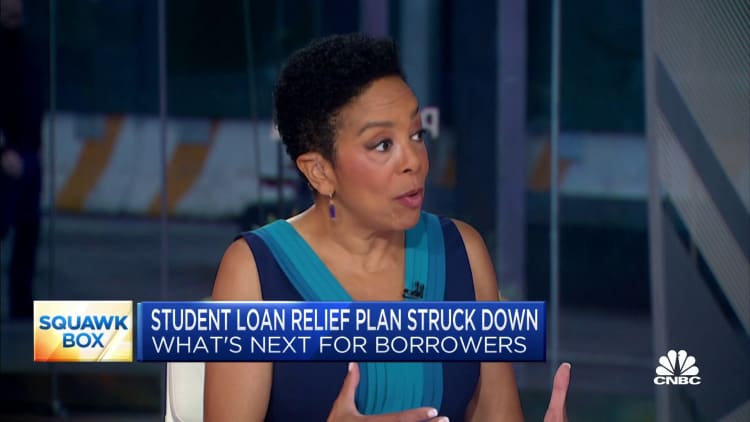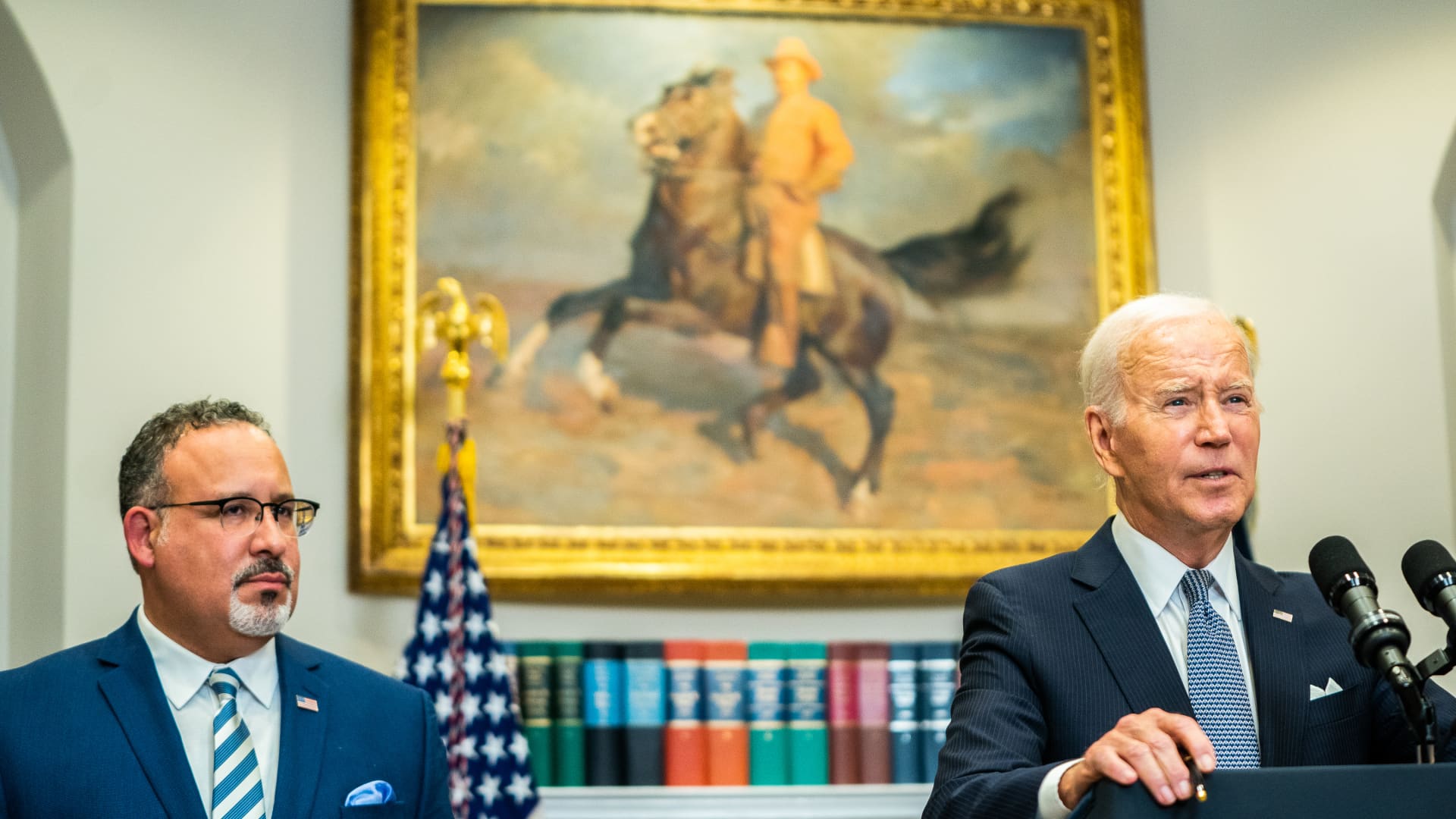President Joe Biden and U.S. Secretary of Education Miguel Cardona, June 30, 2023.
Demetrius Freeman/The Washington Post via Getty Images
Understanding the Differences Between the Two Loan Forgiveness Actions
The recently announced loan forgiveness action differs from the broad debt-cancellation plan originally proposed by the White House, which was struck down by the Supreme Court in a 6-3 decision on June 30. The initial plan aimed to eliminate up to $20,000 of student debt for millions of borrowers with federal loans, costing an estimated $400 billion.
The latest announcement specifically pertains to borrowers in income-driven repayment plans. These plans, which include four options, are designed to make loan payments more affordable for individuals with lower incomes.
The income-driven repayment plans set a cap on monthly payments, generally at 10% or 20% of a household’s discretionary income, depending on the plan. The U.S. Department of Education is working to implement a new plan with a 5% cap.

Importantly, under the income-driven repayment plans, borrowers who consistently make payments for 20 or 25 years have the remaining loan balances forgiven. However, administrative errors have prevented many borrowers from receiving the forgiveness they are entitled to, even after meeting the requirements.
The new policy will automatically discharge the debt of eligible borrowers in the coming weeks, as announced by the Department of Education. “For far too long, borrowers fell through the cracks of a broken system that failed to keep accurate track of their progress towards forgiveness,” said U.S. Secretary of Education Miguel Cardona in a statement.
Understanding the Legal Precedents of the Recent Plan
Some lawmakers have raised concerns about the legal basis of the recent loan forgiveness action. However, experts point out that the two actions are grounded in different legal precedents.
The sweeping forgiveness plan announced by President Biden in August 2022 was based on the Heroes Act of 2003, which granted the president authority to modify student loan programs during national emergencies. The Biden administration argued that the Covid-19 pandemic constituted such an emergency. However, the Supreme Court disagreed and ruled that the Department of Education would need congressional authorization to cancel a significant amount of consumer debt.
In contrast, Congress has already authorized loan forgiveness for income-driven repayment plans dating back to the 1990s. The current plan focuses on properly implementing a program established by Congress in 1995 and is on solid legal footing. The Department of Education has stated that the plan is not vulnerable to legal challenges.
“This program is narrowly tailored to people who’ve been in repayment for decades already.”
Abby Shafroth
Co-Director of Advocacy and Director of the Student Loan Borrower Assistance Program at the National Consumer Law Center
The current plan primarily benefits individuals who are or were enrolled in the Income-Contingent Repayment program, the only one of the four income-driven repayment plans with a long enough history to provide debt forgiveness. On average, borrowers in this program have a loan balance of $48,000.
While some have questioned the legality of the recent action, it is important to note that borrowers who receive relief before any potential legal challenges arise will likely not have their forgiveness overturned.
The Precedence of IDR Forgiveness
When deciding on the scope of forgiveness, the Biden administration had some discretion, particularly regarding which loan payments can be counted towards a borrower’s overall payment tally and determine their eligibility for forgiveness. The Department of Education examined economic hardship deferments, loan forbearance, and partial or late payments in this regard. It falls well within the Department’s discretion to make these determinations, and the courts are likely to defer to their judgment.
The Department of Education began a review of all income-driven repayment plan participants last year and made a one-time adjustment to their accounts. The recent announcement of forgiveness is the result of that review, which was announced in April 2022, predating both the Supreme Court ruling and the initial policy announcement. Therefore, questions regarding the legality of the action are largely irrelevant to borrowers who receive relief before any potential lawsuits arise.
Denial of responsibility! VigourTimes is an automatic aggregator of Global media. In each content, the hyperlink to the primary source is specified. All trademarks belong to their rightful owners, and all materials to their authors. For any complaint, please reach us at – [email protected]. We will take necessary action within 24 hours.


